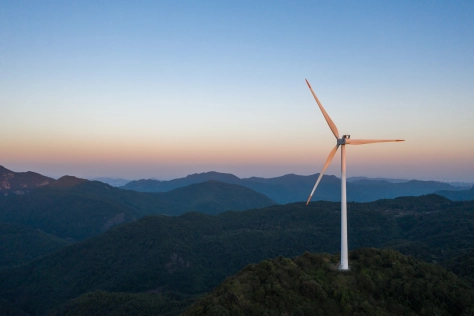What is COP?
The term COP stands for the Conference of the Parties and is most closely associated with the United Nations Framework Convention on Climate Change (UNFCCC). This international assembly is the primary decision-making body of the UNFCCC, comprising representatives from countries committed to climate action under the convention.
The UNFCCC COP convenes annually, serving as a vital platform for negotiating new climate measures and assessing the progress of participating nations towards the overarching goal of mitigating climate change. Each COP typically culminates in a public statement or a binding agreement. For example, at COP28 in 2023, delegates reached the UAE Consensus.
While COP is often linked to the UNFCCC, it also applies to governance meetings of other treaty bodies. Notably, 2024 has two additional significant COPs:
- UN Convention on Biological Diversity (UNCBD) - Focused on nature and biodiversity, this conference took place in October in Colombia with mixed results.
- United Nations Convention to Combat Desertification (UNCCD) - Addressing issues of land degradation. This COP will take place in December in Saudi Arabia.
What happens at Climate COP?
COP has been pivotal in formulating influential agreements like the Kyoto Protocol (COP3) and the Paris Agreement (COP21).
Key activities at COP include reviewing contributions from each member country, especially those aligned with the Paris Agreement. These countries submit Nationally Determined Contributions (NDCs), which are their commitments to reduce emissions and adapt to climate impacts.
Ireland’s NDCs are included here.
Who Attends COP?
COP gatherings include government representatives (Parties) and non-party observer organisations, NGOs, the private sector, financial institutions, local communities and subnational authorities. Given the election in Ireland, An Taoiseach will not be attending. Instead, Minister for Climate Action, Eamon Ryan, will relate Ireland’s position. Further, Minister Ryan has been asked by the UN and COP29 presidency to lead negotiations on climate adaptation – measures that help climate vulnerable countries become more resilient to the inevitable impacts of global warming.
The COP Presidency rotates between regions, with the COP President typically being a senior official from the host country. Various other groups within the UNFCCC, such as those representing Arab States, the European Union and Small Island States, often convene to align on their positions and interests.
The Paris Climate Agreement
The Paris Agreement, forged at COP21 in 2015, is the first legally binding global treaty on climate change. It has garnered commitments from nearly all countries to:
- Limit global temperature rise to well below 2°C, ideally below 1.5°C, above pre-industrial levels.
- Enhance resilience and adaptation to climate impacts.
- Align financial flows with pathways toward low greenhouse gas emissions and climate-resilient development.
This agreement operates on a bottom-up approach, with each country independently determining its emission reduction targets, communicated through NDCs. These targets are revised every five years in a process known as the 'ratchet mechanism,' aimed at progressively increasing ambition.
COP21 relevance for business
For businesses, understanding the implications of the Paris Agreement is still paramount, because it is the international baseline and common framework for tackling the climate emergency. It underpins the EU’s Net Zero policy, Ireland’s Climate Action Plan and the Climate Action and Low Carbon Development (Amendment) Act 2021 in Irish law.
Ireland’s progress
In May 2024, the EPA reported that Ireland is significantly off-track in meeting its climate commitments.
- Ireland is projected to achieve a reduction of up to 29% in total greenhouse gas emissions by 2030, compared to a target of 51 per cent, (N.B. when the impact of the majority of actions outlined in Climate Action Plan 2024 is included).
- To achieve a reduction of 29% would require full implementation of a wide range of policies and plans across all sectors and for these to deliver the anticipated carbon savings.
- Almost all sectors of the economy are on a trajectory to exceed their national sectoral emissions ceilings for 2025 and 2030, including Agriculture, Electricity and Transport.
- The first two carbon budgets (2021-2030) will not be met and by a significant margin of between 17 and 27 per cent.
- Ireland will not meet its EU Effort Sharing Regulation target of 42 per cent reduction by 2030.
COP29
It’s anticipated that the following topics featuring at COP29 include:
- The new finance goal. Known as the new collective quantified goal (NCQG), it is due to be adopted at COP29, building on the $100 billion per year committed in 2009 and extended to 2025.
- The NDCs are due to be updated between November 2024 and February 2025.
- Building a high integrity international carbon market.
- A working Loss and Damage Fund that leverages private risk markets.
- Aligning biodiversity and climate through nature-based solutions.
Some key considerations for COP29:
COP29 is significant because global temperatures in 2024 have exceeded 1.5C, so efforts to keep the Paris Agreement alive will focus on staying below 2C. On day 1 of COP29, Governments approved new standards from the UN for international carbon markets, allowing countries to trade credits to meet their climate targets.
In Ireland, we should follow the work and messages of outgoing Minister Ryan. He will be trying to build trust among the Parties to deliver fairness in how much more developed countries contribute and how innovative sources of finance can be raised to support developing countries adapt to climate change.
From an Irish and European perspective, we hope to hear more about reinforcing the EU Green Deal as a basis for economic renewal, re-alignment of the UK with the EU position on sustainability leadership. We will also keep an eye out for how the US and China change positions on contributions to climate action.
So far after Day 2 standout speeches by the Prime Ministers of UK, Albania, Barbados, with another impassioned plea for action from the UN Secretary-General Antonio Gutierrez
In our next article on COP29 we will review Sustainable Finance.








